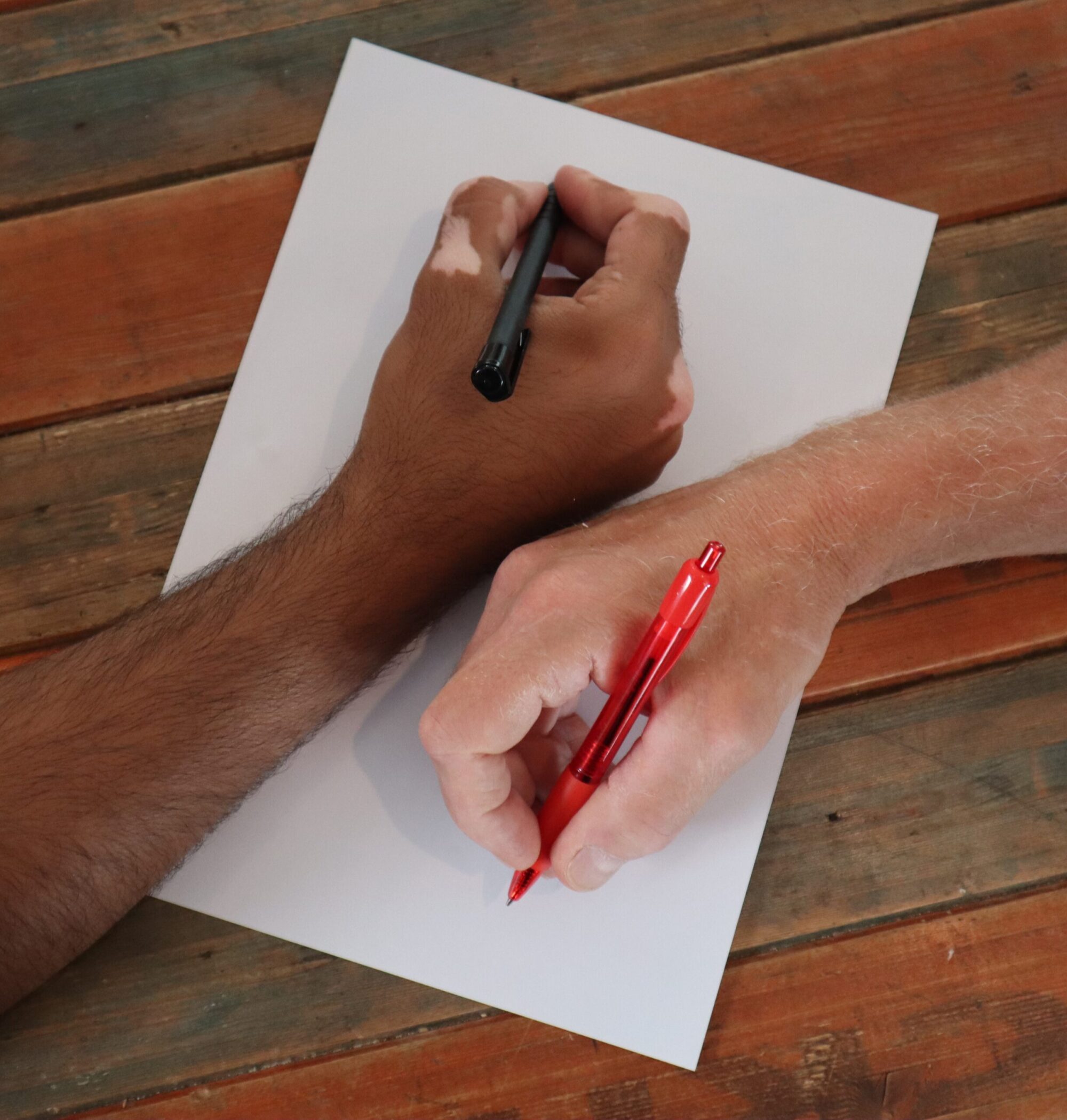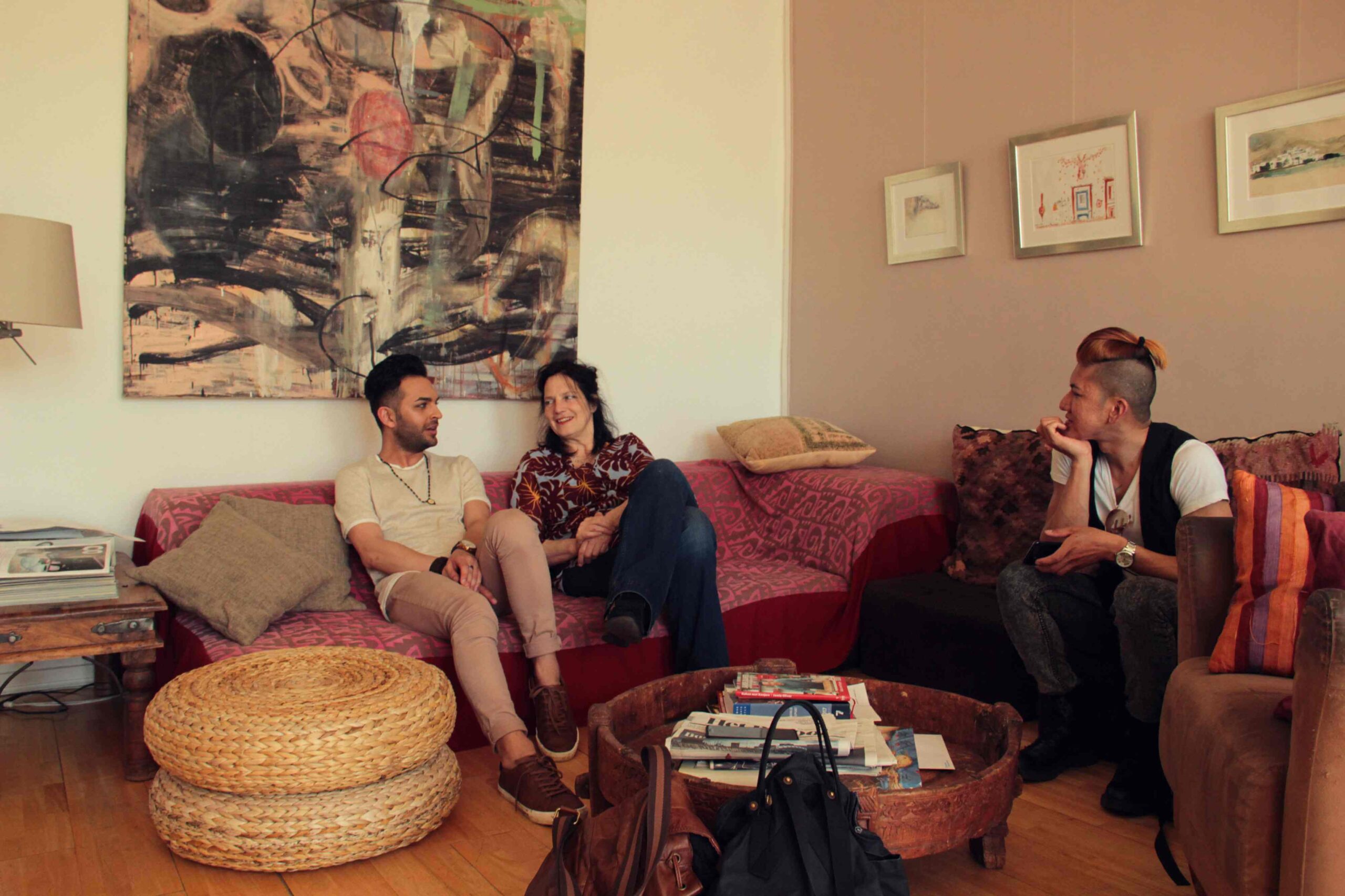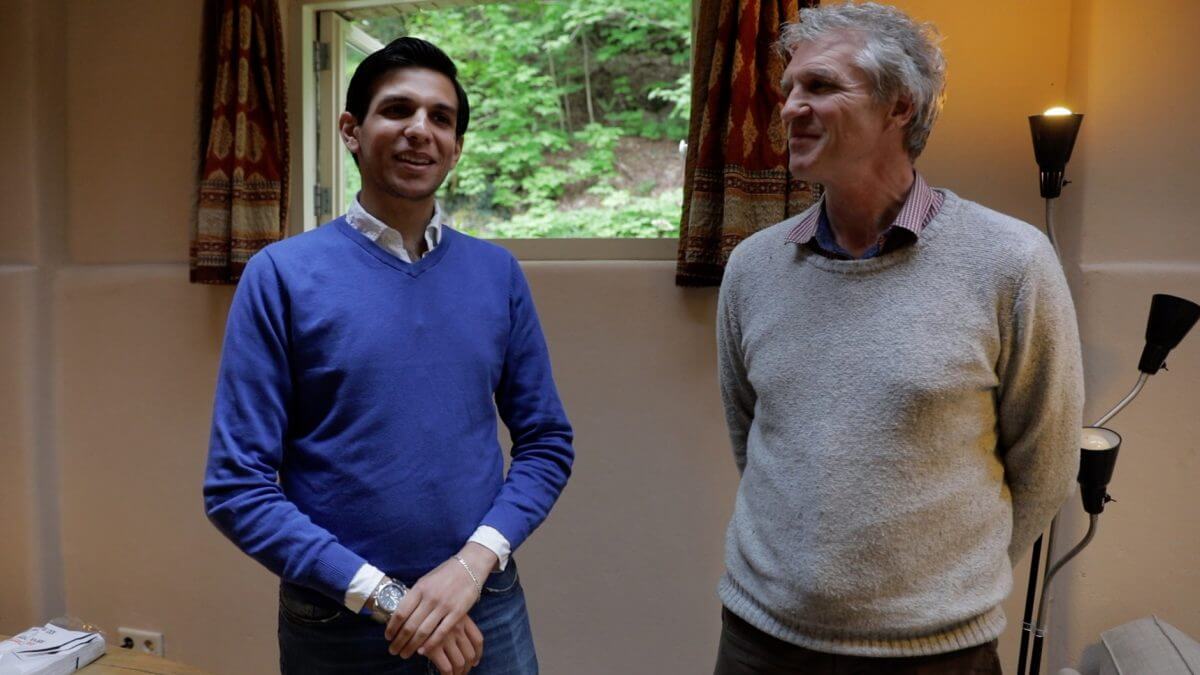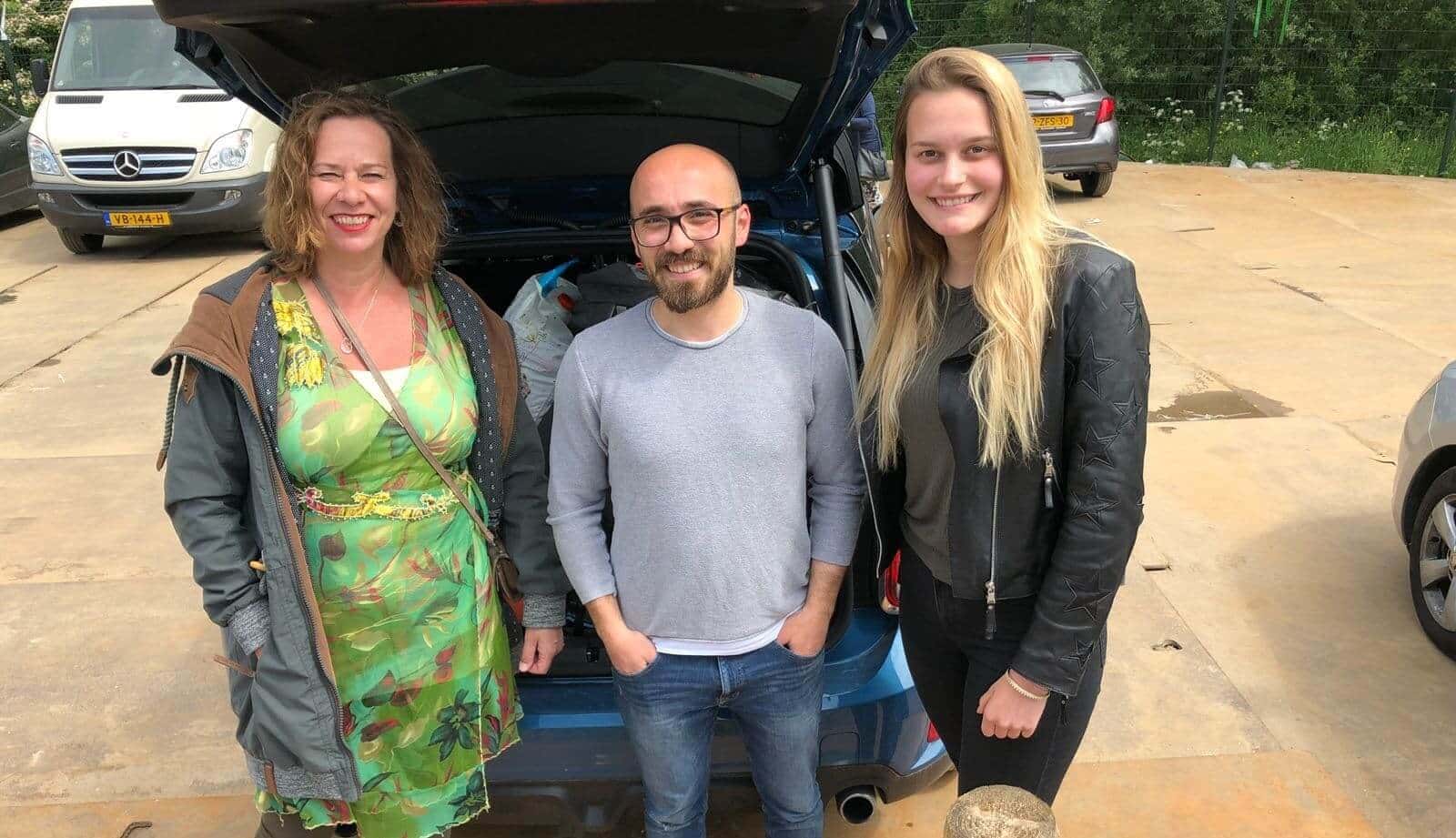Week 4: Close to home

In ‘Close to home’ Yemeni refugee Ali* and host Robert share their experiences living together. There will be weekly posts about the ups and downs, difficulties, highlights and surprises. This week they talk about missing and finding (new) family.
*not his real name.
Robert is many things, dad, dog-lover, Director of Takecarebnb, an organisation that matches newcomers to host families. Every day, he convinces Dutch host families to offer temporary places of stays for refugees with a status. Now that his youngest daughter has passed her final exams, it’s time to put his words into action.
Ali is a refugee from Yemen with big dreams. He loves poetry, chess and can solve a Rubik’s cube in less than a minute. He spent time studying and working in India when it became clear he could not return to Yemen. When travelling to Europe as part of a conference, he visited The Netherlands and knew he wanted to stay.
Ali: Robert texted: “On my way with L, N, and H.” It’s my first time meeting them, and first impressions last. They arrived, but the first child to enter the house was Ollie, so I lost focus and didn’t know how to greet them. Should I just say hello, shake hands, or stay away from Ollie (the dog)? We had our tea party and started talking, everyone was joking and laughing, getting to know each other better. It’s the closest I have felt to being a part of a family in a long time. I tried my best to keep the positive and happy vibe and not cry out loud like a baby. I’m 29 years old and I’m scared to talk about my mental health and terrified of being alone. Is it because I have screamed my emotions out loud before and no one heard me? I did not realize it should be whispered to the right person.
Robert: Ali was surprised to find out we Dutch plan our meetings with friends and family weeks in advance. ‘I am used to calling a friend and ask him if he would like to hang out. Not next week but now. But now I know it doesn’t work that way here. I will adapt!’ So we planned a party for his friends for mid August. Five weeks from now. The Dutch way!
Both my parents died last year. But I still have two brothers and their families, a partner and three children. I have great friends. I watch over them and they watch over me. I am part of a caring network. That network has been present for all 57 years of my life and has grown organically. Ali came to our country at age 28 knowing nobody. And now, a year and a half later, he has made new friends. A handful only, but he is no longer alone. He can call his Yemeni friends. Just as his parents and sisters. He may never see them again in person. Imagine that…
Robert: Hearing Ali laugh with them, knowing he sends them pictures of the fresh flowers in my house (now our house) makes me sad. I don’t think I can ever fully realize what it means to be forced to leave everyone you know behind. But what I can do is offer hospitality, introduce him to the many curious and open-minded people in my network and support him whenever I can, e.g. when he wonders whether or not to join an after work party (‘how do you think they will react when I’m the only one not drinking alcohol?’) or what kind of membership to pick at the gym.
When I hear Ali laugh on the phone with his family I am happy to witness his joy. He tells me about how his mom tells him to help clean the house. How his father asks time and again if there is hope for a job. For a house? For a wife? His family is supportive but at the same time Ali feels the pressure to live up to their expectations. It makes me think about my parents. Did they give me more freedom to choose than Ali’s parents appear to do? Or did I feel the same pressure to make them proud, to meet their expectations, although maybe less clearly articulated? It’s another example of how having a Takecarebnb guest makes you look into the mirror.
Ali: I started a new job at the beginning of the month and I can’t be any happier. While struggling to open my heart and mind and in the middle of the lifestyle confusion, I start feeling like a part of the family again. I’m included in their plans like watching football matches together, a birthday party, even a family gathering. I was so wrong thinking being close to family will hurt me and trigger a feeling I have been trying to bury for a long time, little did I know it could heal me. Being close to family again made me realize how lucky I am to still have a family. I know I don’t live with them but I get to talk to them and support them.
Robert: After having spent my first month with Ali I have come to learn an important lesson: being a newcomer and a refugee will always lead to mixed feelings. Happiness about becoming part of a new network of friends and family on one side and sadness about missing your old one at the same time. Internalizing elements of your new culture on one side while feeling remorse about leaving the old one behind. It’s like building a bridge from two sides with both sides coming ever closer together but never meeting.
Next time on ‘Close to Home’… how are understandings of neighbourhood different for Ali and Robert? What can they learn from each other?


